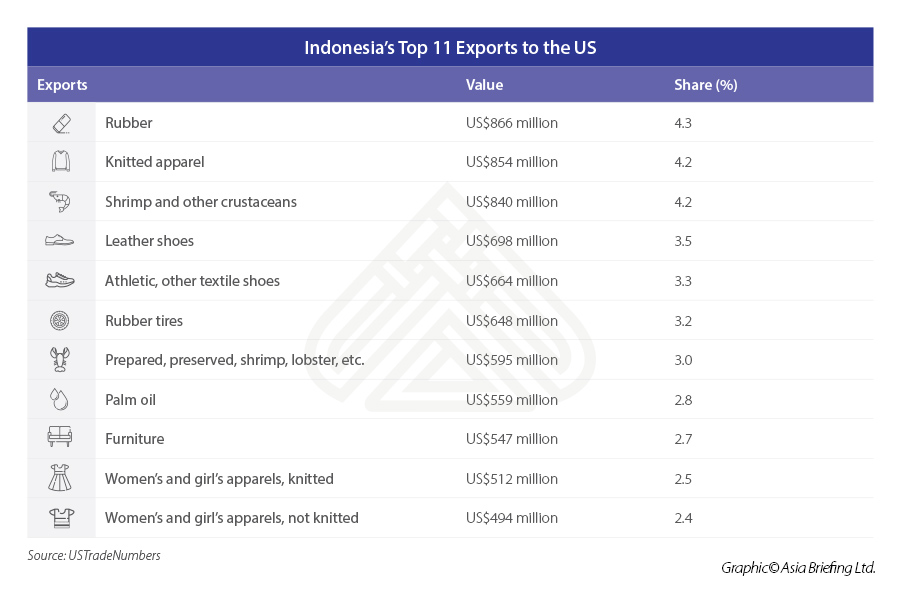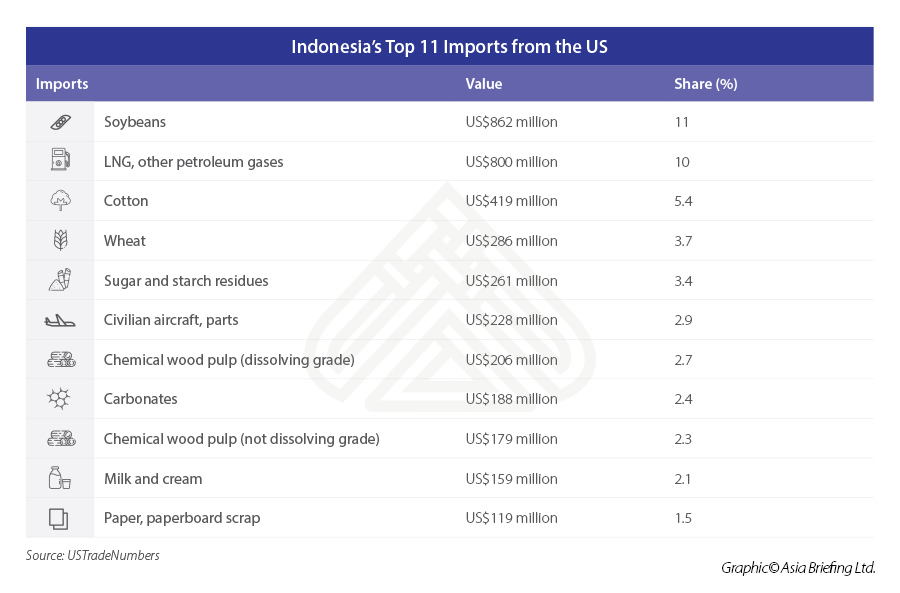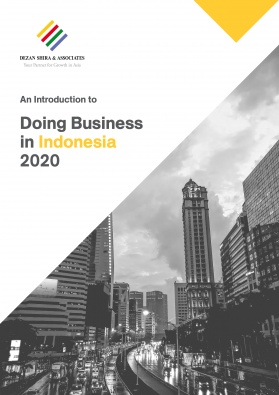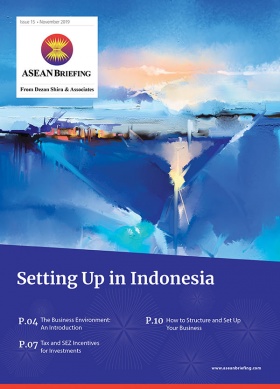Why Indonesia is an Exciting Investment Destination for US Investors
- Indonesia and the United States have enjoyed bilateral relations that stretch from 1949, with annual total trade valued at US$30 billion.
- Indonesia enjoys a trade surplus with the US, with agriculture products, apparel, and rubber being some of the top export categories.
- The country has been heavily promoting new industrial parks to attract US companies, particularly those in the pharmaceutical sector.
- Further, the government is planning reforms to its labor and investment laws to improve its ease of doing business.
Diplomatic relations between Indonesia and the United States stretches back to 1949, following Indonesia’s independence from the Netherlands.
Total (two-way) goods trade between the two countries was valued at some US$30 billion in 2019, and both nations aim to increase this to US$60 billion over the next five years. Bilateral trade in services was estimated at more than US$4 billion for the same year.
Even before independence, US companies were heavily involved in Indonesia’s extractive industries (oil and gas and mining). In 1924, Standard Oil of California (now known as Chevron) discovered what was to become the Duri Field, which became the largest oil field ever to be discovered in Southeast Asia.
Although the extractive industries are the largest sector for US investments, manufacturing is becoming increasingly attractive as well as infrastructure banking, consumer goods, and digital technology. Companies such as Johnson & Johnson and Procter & Gamble own some of the most recognizable brands in the country.Since the start of the US-China trade war, ASEAN countries have been viewed as promising destinations for businesses to implement their China plus one strategy. This strategy involves keeping high-value manufacturing operations in China but shifting more labor-intensive operations to other low-cost jurisdictions.
Indonesia presents opportunities for US investors eyeing a long-term commitment. Being the largest economy in ASEAN, Indonesia offers tremendous growth potential with an economy set to reach US$10 trillion by 2030, which would make it the world’s fourth-largest economy in terms of purchasing power parity.
Indonesia enjoys a trade surplus
Indonesia has consistently enjoyed a trade surplus with the US, which reached US$12.7 billion in 2019, making it the second-largest export partner after China.
Indonesia exported more than US$3 billion in agricultural products to the US in 2019 in addition to more than US$1 billion in tropical oils, with palm oil contributing US$559 million from this total. Indonesia is the world’s largest exporter of palm oil, which amounted to 29.5 million tons in 2019.
Apparel is also one of the country’s largest export products to the US, valued at more than US$2 billion in the same year, with women’s and girl’s apparel being the largest production sector. The government is keen to accelerate the digitization of the apparel industry to become a top-five textile and apparel producer by 2030.
Indonesia and the US are benefitting from the implementation of a reciprocal trade system through which the US buys Indonesian textiles and garments in return for Indonesia importing US cotton.
Indonesia imported some US$7.7 billion in goods in 2019, which include agricultural products, machinery, cotton, and mineral fuels.
Indonesia imported just over US$3 billion in agricultural products from the US in 2019, comprising of soybeans, cotton, wheat, and dairy products, among others.
Further, the country is a large importer of civilian aircraft and their parts, considering it has the second-fastest-growing aviation industry in the world after China (in terms of aircraft order and business value). The International Air Transport Association (IATA) predicted Indonesia will have the fourth-largest air travel market by 2036 with more than 350 million passengers set to fly from and within the country by that time.
Despite the trade deficit, American brands are popular in the country, particularly for consumer goods products, after making the necessary adjustments to comply with local cultures and standards. For instance, McDonald’s, KFC, and Burger King have benefited from first-mover advantages by having their own well-developed Halal propositions — Indonesian Muslims spent some US$218 billion in 2018 on various Islamic sectors, such as finance, F&B, and fashion.
The country’s growing middle-class of over 60 million, a large and youthful population, and strong domestic demand will be appealing considerations for US investors.
Strong military ties
The US has long been a major supplier of military hardware to Indonesia, particularly after the US lifted its military embargo in 2006. The US government initially cut ties with Indonesia’s military in 1999 due to the country’s involvement in the East Timor conflict.
The country has ambitious plans to modernize its armed forces and defense spending is set to increase to between two and three percent of the GDP, a significant increase from the usual 0.8 percent. A key part of this modernization is the upgrade of critical weapons systems in which the US will play a vital role.
The US government recently cleared the sales of eight Bell Boeing MV-22 Block C Osprey tiltrotors, valued at US$2 billion, in addition to 24 Rolls-Royce AE 1107C engines, an array of sensors, and communication equipment. Moreover, US military assistance has now been extended to the gradual lifting of sanctions on the Kopassus (special forces) unit of the Indonesian army. These have been in place in light of the unit’s involvement in military hotspots, including Aceh, Papua, and East Timor.
New opportunities despite the pandemic
Despite the economic slowdown caused by the trade war and the pandemic, the government is preparing to host a number of US companies looking to relocate to Indonesia. US President Donald Trump reportedly revealed in a phone call to Indonesian President Joko Widodo his plans to help US companies relocate from China to Indonesia.
The government is preparing up to 4,000 hectares of land in Central Java province in the Batang Industrial Park to accommodate US companies, particularly those in the pharmaceutical sector. Once set up in this zone, US companies will be offered generous tax incentives.
At the end of June 2020, seven foreign companies, including from the US (Alpan Lighting), Japan, and Taiwan, transferred their production into Indonesia. Alpan Lighting, a solar-light producer, had relocated from Xiamen, China to Kendal in Central Java due to the 25 percent import tariffs applied on products from China. The company’s investments of US$14 million are still modest, however, compared to several non-US investors, who have made a combined total of US$850 million in investment.Dustin Daugherty, Head of North American Desk for Dezan Shira & Associates says, ‘although a lot of US firms may have previously looked at Indonesia primarily as a supplier of raw materials, we’ve seen a noticeable increase in interest in the country as manufacturing or IT outsourcing location, and its enormous domestic market opens up potential opportunities which its smaller neighbors cannot always match’.
Indonesia’s government continues to update its laws to improve the investment environment and encourage more global supply chain relocations into the country. The government is currently preparing an ‘omnibus law’, which will include amendments to the labor laws —among key factors that have made investing in Indonesia a risky proposition for foreign investors.
Such reforms will make Indonesia a more ideal investment destination especially as US companies have already contributed greatly to Indonesia’s development.
About Us
ASEAN Briefing is produced by Dezan Shira & Associates. The firm assists foreign investors throughout Asia and maintains offices throughout ASEAN, including in Singapore, Hanoi, Ho Chi Minh City and Jakarta. Please contact us at asia@dezshira.com or visit our website at www.dezshira.com
- Previous Article The 27th ASEAN Regional Forum: Salient Features
- Next Article Relocating Your Business Operations to Indonesia: A Guide for US Investors










